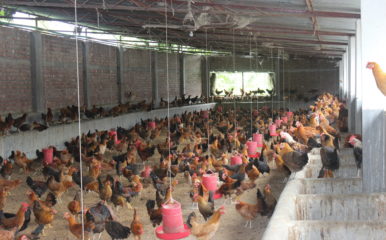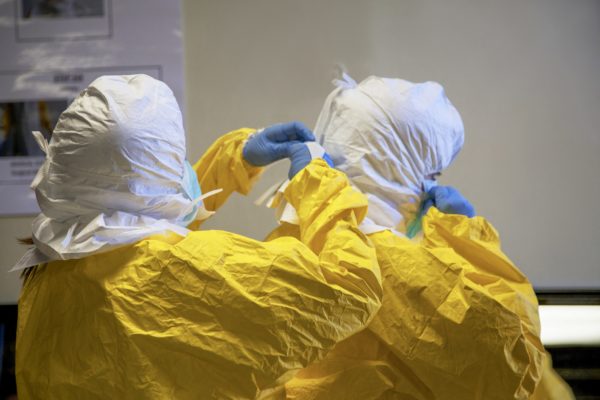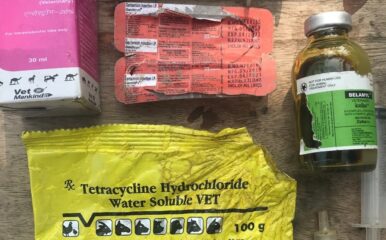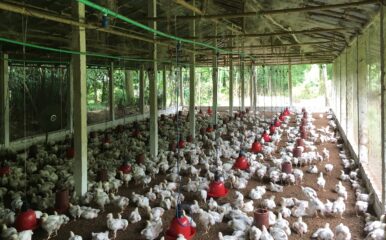
Seeing the Wuhan crisis in context
Published on 28/01/2020

Tmaximumge/ PxHere
It is clearly way too early to be drawing any conclusions from the current public health crisis in Wuhan, China. However, some lessons have been learned from previous outbreak situations and it is essential these are put into action now.
We need to work together
As of writing, the animal source for the Wuhan coronavirus has yet to be identified. Early detection of infected individuals through effective surveillance, together with identification and monitoring of contacts, is essential in any outbreak situation, to tackle the crisis at hand and also to learn as much as possible to prevent future outbreaks. In Wuhan, epidemiological outbreak investigations need to identify the likely sources of exposure, and the incubation period and the speed at which the virus transmits need to be quantified. It is still unclear how much of that has happened, and one has to worry whether some crucial information will now be lost.
The role of wet markets and the variety of domestic and wild animal species being traded in them, often under poor hygiene conditions, needs to be examined in detail. Importantly, these investigations need to be conducted using multidisciplinary teams of scientific experts.
This clearly needs to include human health experts. But veterinary input is also essential for figuring out where the virus came from. For this, the veterinary voice in government needs to be a strong one – both in and outside of crisis periods.
And investigations must also include social scientists such as anthropologists and economists. Their input is critical to understand the role of human behaviour in the emergence of disease and the spread of infection.
But there also needs to be effective governance based on efficient communication between policymakers at different administrative levels within a country, and with technical experts from within and outside government.
However, having stressed the need for multidisciplinary investigations, this understanding can be only a first step towards disease prevention. For effective and sustainable interventions, we also need to be culturally aware.
Consider the culture
Cultural differences in risk perception play an important role when it comes to the emergence of new zoonotic (animal to human) infectious diseases. Speaking personally, my background makes it difficult to understand why people prefer to eat meat from freshly slaughtered animals or believe there are health benefits in eating exotic animal meats. But not only am I not in a position to judge right and wrong, I don’t need to.
What is critical is to understand the reasons for these behaviours which are implicated in so many of the past – and so it seems present – zoonotic disease outbreaks.
An understanding of the rationale for these behaviours needs to inform the mix of appropriate interventions that will result in effective behaviour change – whether these are regulatory changes or ‘nudges’. Traditional enforcement methods and public health messages, often presaged on either sanction or fear or both, have too often proven unsustainable and ineffective.
Don’t panic
Which brings me to my third point: while the situation in Wuhan is undoubtedly scary for those living there, it is essential to prevent widespread panic from developing. Having said that, it is very difficult for governments to get the balance right. The Chinese Government has opted to take some very strong measures, and these are having major effects on people’s daily lives. It has also prompted strong emergency responses in other countries.
One can only hope that these measures are effective, considering their emotional and economic costs in China and elsewhere. This is not to be critical – but to say that we need to maintain a sense of perspective. We also need to acknowledge that if the Chinese Central Government had responded less decisively there would likely have been widespread criticism suggesting cover-ups and underestimation of the severity of the crisis.
Make individual change
We need to remember too that it is easy to cast blame at governments and their responses in times of crisis. Some of the need for change also falls at a more individual level.
I know how hard it is to break free of one’s own scientific silo. However, everybody working in infectious diseases, and particularly infectious diseases that have an animal origin, needs to learn to respect the importance of knowledge generated by other disciplines, and how to integrate that knowledge such that it can result in the development of more effective disease prevention and control policies.
The widespread adoption of such a One Health approach, involving medical, veterinary and social science, as well as other relevant scientific disciplines, will significantly improve our chances of dealing much more effectively with this and future zoonotic disease threats.


